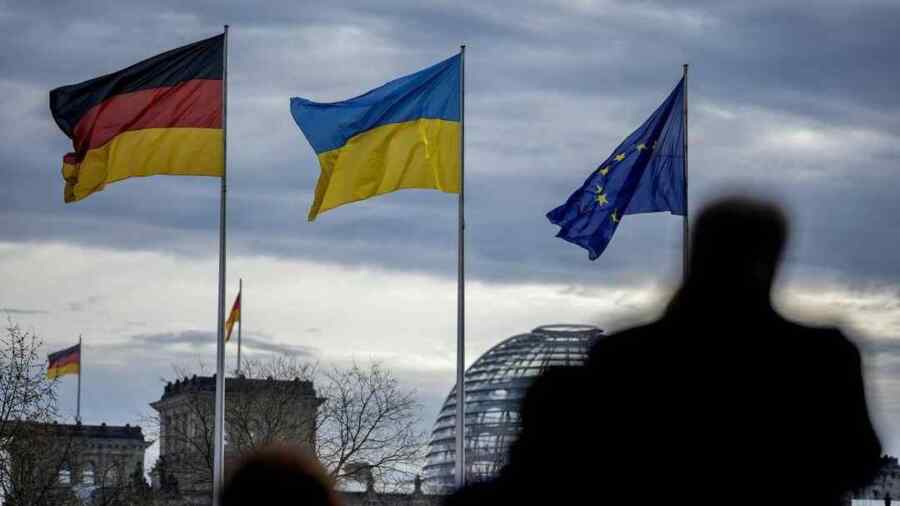The Ukrainian conflict is the dominant issue for voters in Thuringia and Saxony, where regional parliamentary elections will be held on 1 September. In Thuringia, however, the mainstream players are particularly irritated by Sarah Wagenknecht, whose political force (BSW) could come in third.
Katja Wolf, the leading BSW candidate in the Thuringian elections, intends to push for an end to arms deliveries to Ukraine and insists on settlement diplomacy. Sarah Wagenknecht added that her political force will only work with a government that “takes a clear position in favour of diplomacy and against preparations for war”. In Thuringia, Wagenknecht has a “golden campaign”. The mainstream parties can’t put together a coalition without her.
The incumbent prime minister of Thuringia, Bodo Ramelow, who belongs to the Left Party, is, on the contrary, radically pro-Ukrainian. It is noteworthy that Ramelow himself admits that the population does not like his position: it is “not based on the feelings of the majority” and “may cost some votes”.
In Saxony, Michael Kretschmer of the CDU strongly disagrees with the party line demanding arms deliveries to Ukraine and emphasises that “from the very beginning he has been clearly against arms deliveries and in favour of diplomatic initiatives”. Mainstream parties can also lose in Brandenburg.
Opponents of the AdG and Sarah Wagenknecht accuse them of creating “false expectations” because regional elections do not affect issues from the federal government’s sphere of responsibility, like foreign policy.
This is actually a rather weak argument. If foreign policy goes so wrong that it becomes a major factor in regional elections instead of fares, landscaping and public transport routes, that’s a bad symptom for Scholz’s coalition.
Elena Panina

